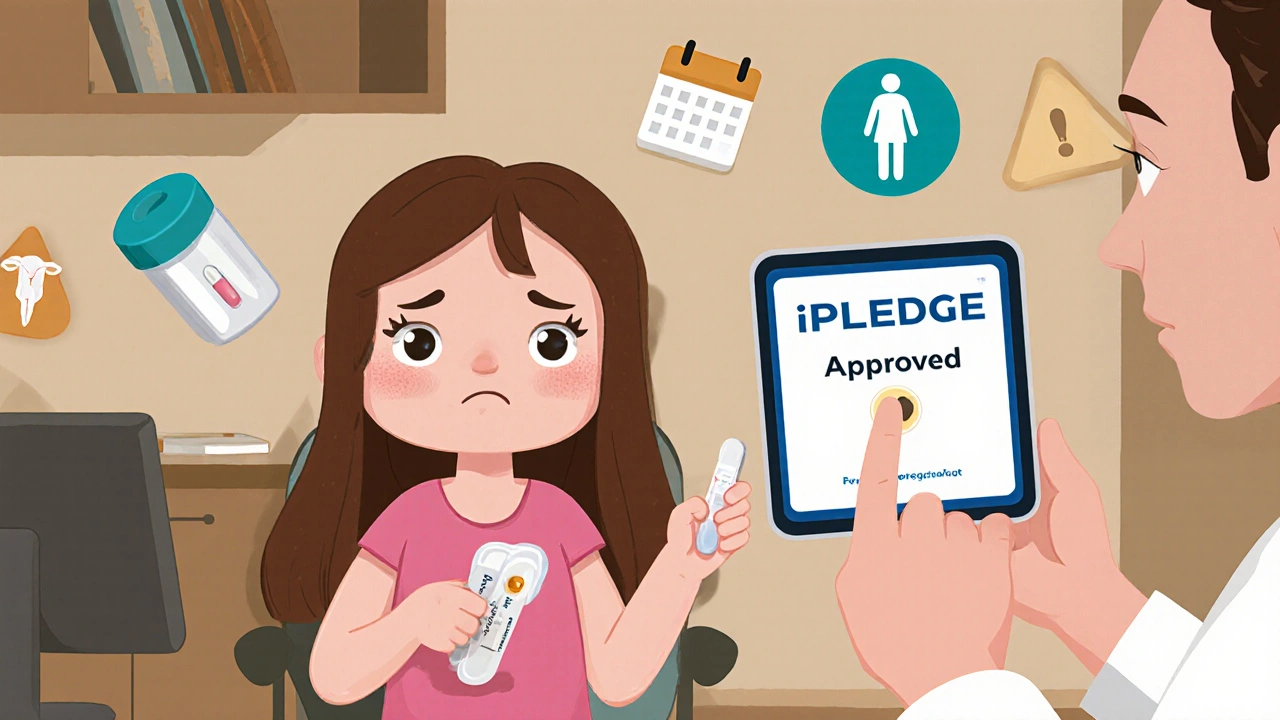Isotretinoin: What It Is, How It Works, and Safe Use
Isotretinoin is a powerful oral medicine for severe acne that hasn’t responded to other treatments. It shrinks oil glands, lowers bacteria, and helps skin renew itself faster. People see big results, but the drug comes with clear risks and rules. Know how it works and how to stay safe before you start.
Who should consider isotretinoin?
Dermatologists usually prescribe isotretinoin for nodular or cystic acne, or acne that scars. It’s also an option when long courses of antibiotics fail. Doctors assess your acne severity, medical history, and lab results first. Women of childbearing age need a strict pregnancy prevention plan before starting.
Safety, monitoring, and tips
Typical treatment lasts 4 to 6 months. Doses vary by weight and target total dose; common daily doses range from 0.3 to 1 mg/kg. Some patients get lower daily doses for longer periods to reduce side effects. Before starting, expect baseline blood tests: liver function, cholesterol, triglycerides, and a pregnancy test if applicable.
Follow-up labs usually happen 4 to 8 weeks after starting and then monthly or as your doctor advises. If triglycerides spike or liver tests rise, your doctor may lower the dose or pause treatment. Don’t take other vitamin A supplements while on isotretinoin—this raises the risk of toxicity.
Dry skin, chapped lips, and dry eyes are common. Use lip balm, gentle cleansers, and non-irritating moisturizers. Avoid waxing and intense skin procedures while on treatment and for some months after. Isotretinoin can increase sun sensitivity—use sunscreen and protective clothing.
The drug can cause severe birth defects. Women who can get pregnant must use two reliable forms of birth control and have negative pregnancy tests before, during, and after treatment as required by local programs. If you’re trying to conceive, delay until your doctor confirms it’s safe.
Some people report mood changes during treatment. Tell your doctor if you experience depression, suicidal thoughts, or major mood shifts. Most patients do fine, but any mental health changes should be taken seriously and checked promptly.
Isotretinoin interacts with certain drugs. Avoid tetracycline antibiotics (risk of raised pressure in the skull) and additional vitamin A. Tell your doctor about all meds, supplements, and health conditions before starting.
Buying isotretinoin online requires caution. Use licensed pharmacies and a valid prescription. Ask your dermatologist for trusted options and avoid sites that do not require a prescription. Authentic medication and proper medical oversight reduce risk.
After finishing treatment, many people see long-term improvement. Some need a second course at a lower dose. Keep in touch with your dermatologist and follow post-treatment care to protect your skin and overall health.
Don't donate blood while taking isotretinoin and for at least one month after stopping; this protects pregnant women who might receive your blood. Limit alcohol—heavy drinking worsens liver and triglyceride issues. Keep a simple skin routine: gentle cleanser, non-comedogenic moisturizer, SPF every day. Bring any questions to your dermatologist; it's better to ask than to guess with this medicine. Always.



